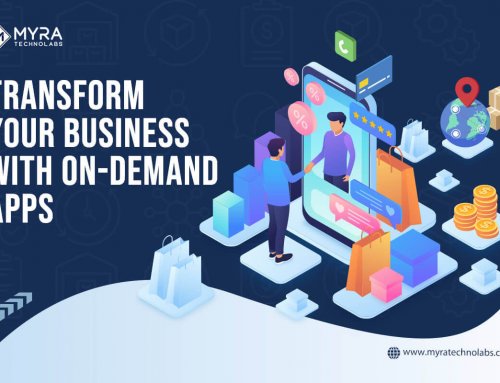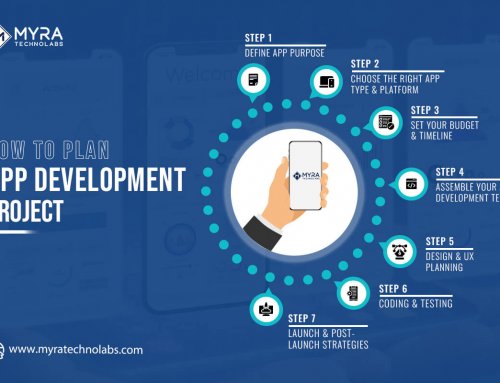The use of mobile devices has surpassed all kinds of other digital interactions in this highly digitalized world of today. As per Statista, mobile devices contribute to over 60% of the web traffic globally. To stay relevant and accessible, businesses around the world are now opting for mobile-first strategies. Now this makes sense as around 4.69 billion people own a smartphone and by 2028, this number is expected to reach 5.38 billion. Apart from being impressive, these numbers indicate the urgency of having a strong mobile presence for businesses. It also stresses on the need of having mobile app for business.
The Rise of the Digital Economy
Like the traditional ones, some digital technologies help build economy and it is called digital economy. It involves key roles played by automation, connectivity and data over the internet to help businesses operate. Industries of all sizes can benefit from it and enhance customer expectations, streamline operations and unlock new revenue streams.
Smartphones and mobile apps are at the core of this digital transformation and play a key role in the day-to-day lives of consumers. From communication and entertainment to banking and shopping, mobile apps from reliable mobile app development company work as the key factor in ensuring their digital interactions.
Key Reasons Your Business Needs a Mobile App
1. Enhanced Customer Engagement
Mobile apps provide an interactive way for businesses to engage customers. They get to keep users informed with push notifications while building long-term relationships through in-app feedback and loyalty programs. By analyzing user behavior and preferences, apps enable personalized experiences which increases the chances of brand loyalty and repeat visits.
2. Improved Brand Visibility and Recognition
A mobile app helps your brand get constant visibility and reminds your users daily of your presence by placing your brand icon on their home screens. Additionally, it is possible to expand brand reach and attract more users through app store listings and social sharing features by choosing right mobile app development services.
3. Direct Marketing Channel
Mobile apps work as your direct connection to your targeted audience. Whether its product launches, promotions or offers, you can use push notifications to deliver updates directly to them for targeted communication in timely manner without having to rely on third-party platforms.
4. Increased Sales and Revenue
Apps allow seamless and fast purchasing by offering secure mobile payments and one-click checkout. With mobile shopping becoming a trend, businesses that have invested in user-friendly apps will see an increase in average order values and higher conversion rates, that can increase revenue directly.
5. Competitive Advantage
Businesses that have no apps have the high risk of losing markets in this mobile-first world. Companies like Nike and Starbucks have been able to improve customer loyalty and scale operations through mobile apps. Apart from letting you stay competitive, a trusted mobile app development company will help you stay unique in a crowded market.
6. Data Collection and Customer Insights
Valuable in-app analytics can be gained from apps that can help a business understand user preferences, behavior and pain points. This data can be used to improve marketing strategies, personalize offerings and make informed product decisions which can then be turned into actionable insights.
Unlock the Power of Mobile for Your Business!
Stay ahead in the digital world with a powerful mobile app. Boost engagement, streamline marketing, and grow your business — let’s build the right solution together.
Industries Benefiting Most from Mobile Apps
Retail & eCommerce
Mobile applications ensures seamless shopping experiences, one-click checkouts, personalized product recommendations and push notifications by boosting sales and customer loyalty.
Healthcare
Healthcare apps make services more efficient and accessible by offering online consultations, digital prescriptions, appointment bookings, and remote patient monitoring.
Real Estate
Apps can help renters and buyers browse listings, get virtual tour and schedule viewings while agents can enjoy lead tracking and real-time updates.
Logistics & Transportation
Mobile apps improve route optimization, fleet tracking, inventory management and delivery updates which offer operational efficiency and transparency.
Education & eLearning
Such applications offer interactive courses, live sessions, progress tracking and 24*7 access to content which makes learning more flexible and engaging.
Should My Business Invest In Native Or Hybrid App Development?
‘A native, hybrid or PWA – what to choose?’ businesses can have a hard time making this choice when planning to go ahead with mobile app development.
When it comes to native apps, they are focused for Android and iOS platforms independently and do well in terms of performance, security and user experience. This can be ideal for apps that come with complex features and needs to be highly responsiveness. PWAs are web-based apps which have limited access to device features while mimicking native functionality.
React Native is one of the frameworks used for hybrid app development. As there is only a single codebase, it reduces the cost and time for development. React Native app development services can offer a perfect balance between budget and performance for businesses looking for a middle ground. Quick comparison and recommendation for businesses.
What Is The Process Of My Mobile App Development
Several key steps are involved in the mobile app development process, and they are:
- Idea – Define the purpose of your app, target audience and the challenge you wish to address with it.
- Planning – Choose technology stack, define user journeys, core features, and budget.
- Design – Work on an intuitive user experience by creating UI/UX prototypes and wireframes to ensure.
- Development – Code the application by developing required features and functionality.
- Launch – Test the application thoroughly, fix errors and bugs, and deploy the app on relevant app stores.
It is the right development team that we chose for the project that decides the success of the mobile app for business greatly. A skilled team will help you refine your idea apart from writing codes and also help you choose the right technology stack. Again, it is possible to save time, reduce costs, and deliver a product that surpasses your expectations with the right team.
Conclusion
With consumer behavior shifting to smartphones, businesses may fall behind the competition and miss opportunities by not adopting to a business app quickly From boosting brand visibility to customer engagement, unlocking valuable user insights to driving sales, mobile apps empower businesses in many aspects. Businesses will be able to meet their goals and ensure future growth by investing in excellent mobile app strategy.





